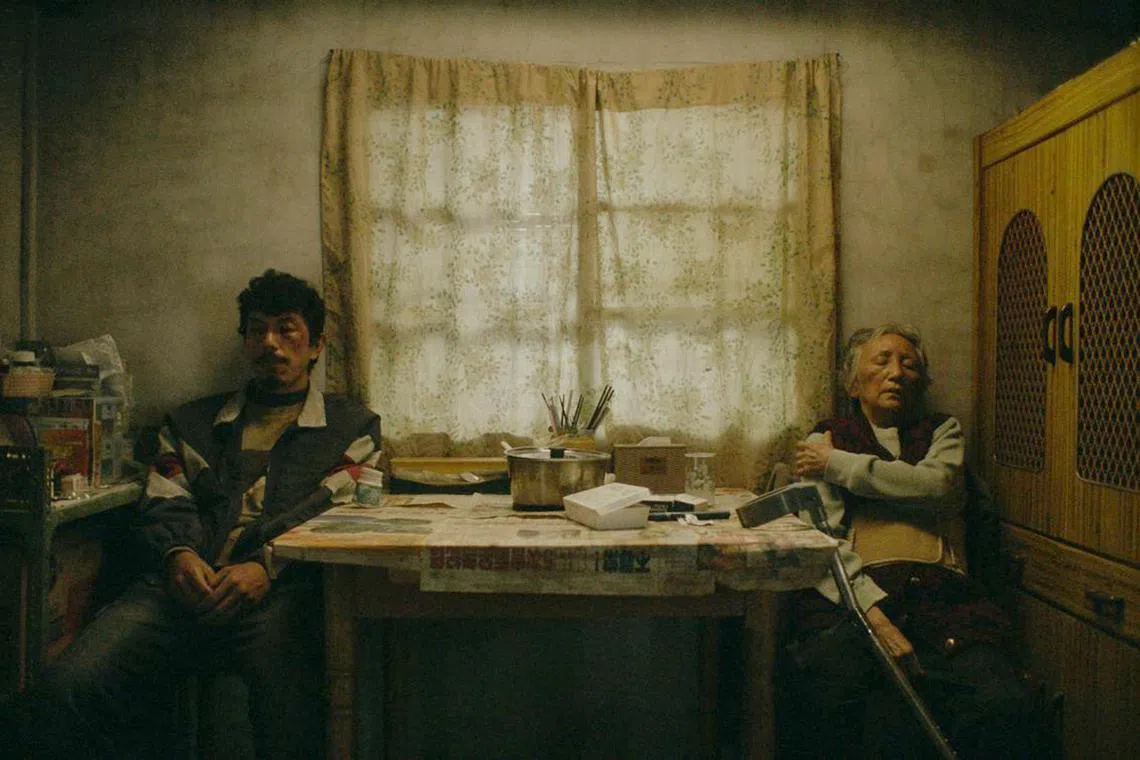At The Movies: Mongrel, a raw look at the hidden world of caregivers, shows its teeth
Sign up now: Get ST's newsletters delivered to your inbox

Thai actor Wanlop Rungkumjad as Oom and Lu Yi-ching as Mei.
PHOTO: The Projector
Follow topic:
Mongrel (M18)
130 minutes, opens on Jan 26 exclusively at The Projector
★★★★☆
The story: In Taiwan’s rural highlands, undocumented migrants perform jobs that locals refuse to take. Among them is Oom (Thai actor Wanlop Rungkumjad), a caregiver whose gentle leadership in the migrant community matches his dedication to his elderly charges. These include Hui (disabled actor Kuo Shu-wei), a man with cerebral palsy, and Hui’s mother Mei (Lu Yi-ching). When Oom’s boss Hsing (Hong Yu-hong) betrays his promise to protect the workers, Oom’s precarious world begins to crumble.
Singaporean writer-director Chiang Wei Liang’s unflinching debut feature can be a tough watch. Then again, it deals with a tough subject matter – the lives of those struggling in a strange land that needs them desperately, yet views them as disposable.
His uncompromising approach is evident from the opening scene, which tests viewers’ gag reflexes while making a powerful point: Foreign caregivers perform these repulsive tasks daily, showing humanity to others even as they are denied the same in their adopted land.
Migration has long been Chiang’s focus, from his short films Luzon (2017), Nyi Ma Lay (2017) and Only The Mountain Remains (2018) to this debut feature, which emerged from his extensive research with South-east Asian migrants in Taiwan.
In dimly lit scenes that reflect the underworld in which the undocumented find themselves, Oom – played with great sensitivity by Rungkumjad – and his handler Hsing are shown to have a great friendship.
They engage in banter and party together, but as Mongrel develops, their friendship mirrors society. Oom, like many of the South-east Asian workers in his group, is granted friendship and a small amount of status only when he is useful. They take a hard fall when they lose their ability to work.
Oom’s story is tragic, but Chiang – working with his Taiwanese wife and co-director Yin You-qiao – makes the character more than just an abstract representation of labour exploitation that could happen anywhere in the world.
Oom is instinctively kind and emanates the energy of a responsible elder brother. The trait grants him some status in the migrant worker community, but in their topsy-turvy shadow world, his loyalty becomes a tool by which he is exploited.
Chiang grounds his ideas about transient labour and social injustice in dialogue-sparse scenes rich with meaning –from eerily quiet depopulated rural landscapes to haunting moments where adult children become prison wardens, locking elderly parents away with hapless foreign caregivers before departing for work.
Hot take: In this Taiwan-Singapore-France co-production, which received a special mention in the Cannes Film Festival Camera d’Or category, kindness becomes both a salvation and a curse for one man in the shadow world of undocumented caregivers.


